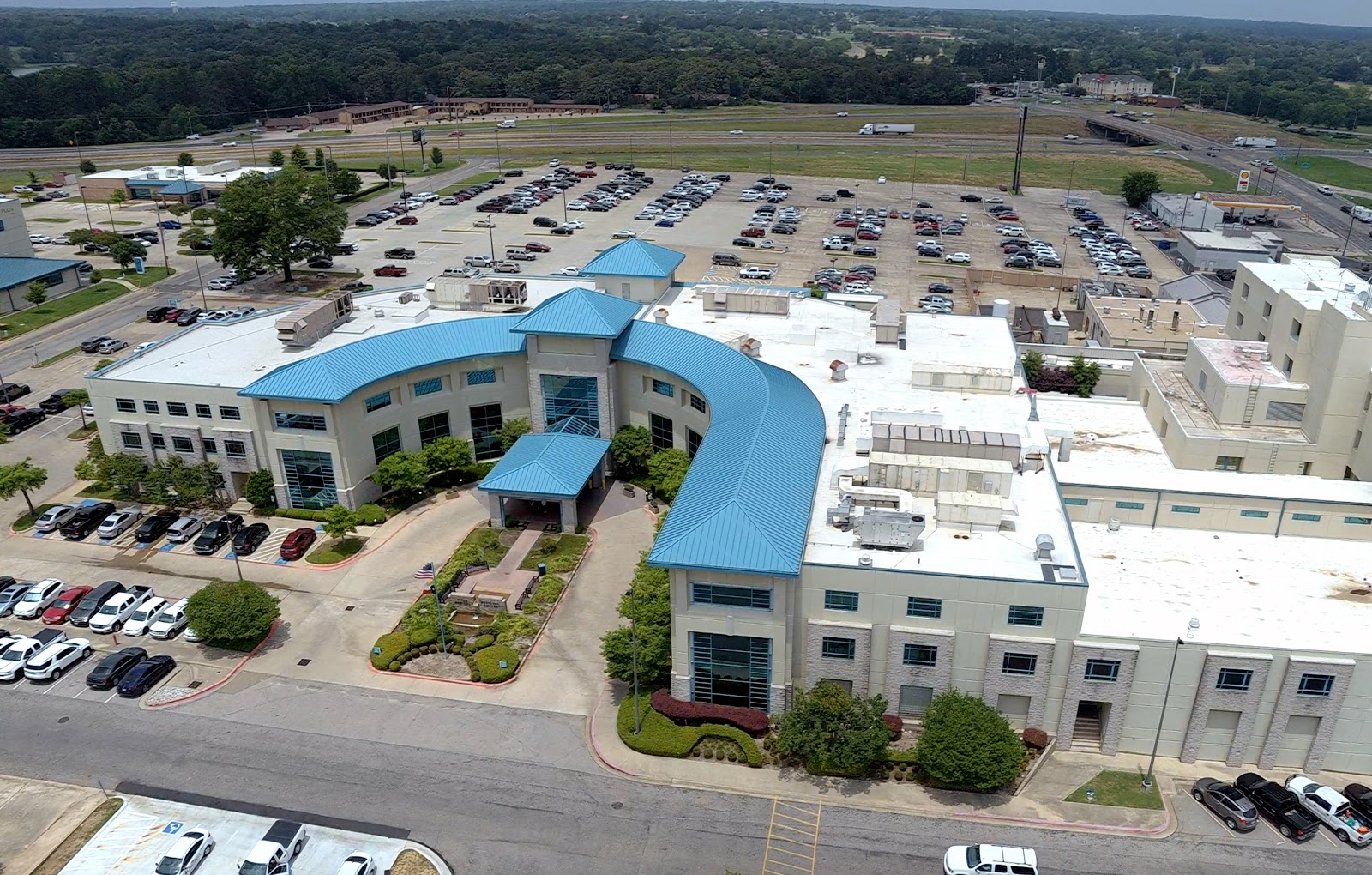Titus Regional Medical Center


Overview
Titus Regional Medical Center is a mental health treatment center for people seeking treatment near Titus County. As part of their treatment modalities for recovery, Titus Regional Medical Center provides individual psychotherapy during treatment. Titus Regional Medical Center is located in Mount Pleasant, Texas, accepting private health insurance for treatment.
Titus Regional Medical Center at a Glance
Payment Options
- Private health insurance
- Cash or self-payment
- State mental health agency (or equivalent) funds
- Medicare
- Federal military insurance (e.g., TRICARE)
Assessments
- Comprehensive mental health assessment
Age Groups
- Adults
- Seniors
- Young adults
Operation
- State government
Treatment At Titus Regional Medical Center

Conditions Treated
Mental health treatment:
Mental health services are essential during treatment for drug and alcohol addiction, whether you receive treatment in an inpatient or outpatient setting. While receiving inpatient care, you can expect to have round-the-clock access to mental health therapists and medical staff. Additionally, you will likely receive a number of different therapies and mental health options like individual and group counseling, addiction and relapse prevention education, and coping skills training.

Levels Of Care
Hospital inpatient treatment:
Residential treatment programs provide housing, meals, and substance abuse treatment, offering patients an environment dedicated entirely to their recovery, distinct from their everyday life. While some rehab facilities concentrate on short-term stays lasting a few days to a couple of weeks, others emphasize long-term care spanning several weeks to months. Many centers offer both, customizing the treatment based on each patient's unique needs.

Treatment Modalities
Individual psychotherapy:
Individual Psychotherapy is a personalized therapeutic approach aimed at aiding individuals in overcoming addiction and its underlying psychological triggers. A licensed therapist works closely with the individual through one-on-one sessions to unearth and address personal challenges, emotional issues, and behavioral patterns contributing to their substance abuse. Individual psychotherapy lays a robust foundation for a sustainable recovery and a better quality of life by fostering self-awareness, coping strategies, and healthier behavioral responses.
Cognitive Behavioral Therapy:
Cognitive Behavioral Therapy (CBT) is a evidence-based psychotherapeutic approach that aims to address dysfunctional emotions, behaviors, and cognitions through a goal-oriented, systematic process. It involves identifying and challenging negative thought patterns and beliefs and replacing them with more constructive ways of thinking and behaving. CBT is commonly used to treat a variety of mental health disorders, including depression, anxiety, and phobias.
Nicotine replacement:
Nicotine Replacement Therapy (NRT) provides nicotine to the system without the need for smoking. It utilizes products that deliver minimal doses of nicotine, assisting individuals in their quest to quit smoking. The therapy aims to reduce nicotine cravings and mitigate withdrawal symptoms.
Group counseling:
Group therapy entails therapeutic sessions conducted in a collective setting rather than one-on-one. It encompasses various modalities, from support groups and experiential therapy to psycho-education and beyond. The approach focuses on treatment and emphasizes the dynamic interactions and shared experiences among group members.
Experiential Therapy:
Experiential therapy is a form of therapy in which clients are encouraged to surface and work through subconscious issues by engaging in real-time experiences. Experiential therapy departs from traditional talk therapy by involving the body, and having clients engage in activities, movements, and physical and emotional expression. This can involve role-play or using props (which can include other people). Experiential therapy can help people process trauma, memories, and emotion quickly, deeply, and in a lasting fashion, leading to substantial and impactful healing.
Nutrition Therapy:
Nutrition therapy, often referred to as medical nutrition therapy (MNT), harnesses the power of diet to address physical, emotional, and medical challenges. Expert nutritionists or registered dietitians craft specialized dietary strategies for individuals, guiding them to enhance both their physical and psychological well-being through food choices.
Trauma-related counseling:
Trauma-related counseling is a specialized form of therapeutic intervention aimed at assisting individuals who have experienced distressing, life-altering events. This approach focuses on helping clients process their traumatic experiences, develop coping mechanisms, and rebuild a sense of safety and trust. Counselors trained in trauma therapy use evidence-based techniques to support healing and resilience, ensuring survivors can move forward and lead fulfilling lives despite their past adversities.
Ancillary Services
Languages
- Sign language services for the deaf and hard of hearing
- Spanish
Special Programs
- Clients who have experienced trauma
- Persons 18 and older with serious mental illness (SMI)
Contact Information
DISCLAIMER: The facility name, logo and brand are the property and registered trademarks of Titus Regional Medical Center, and are being used for identification and informational purposes only. Use of these names, logos and brands shall not imply endorsement. BetterAddictionCare.com is not affiliated with or sponsored by Titus Regional Medical Center.

